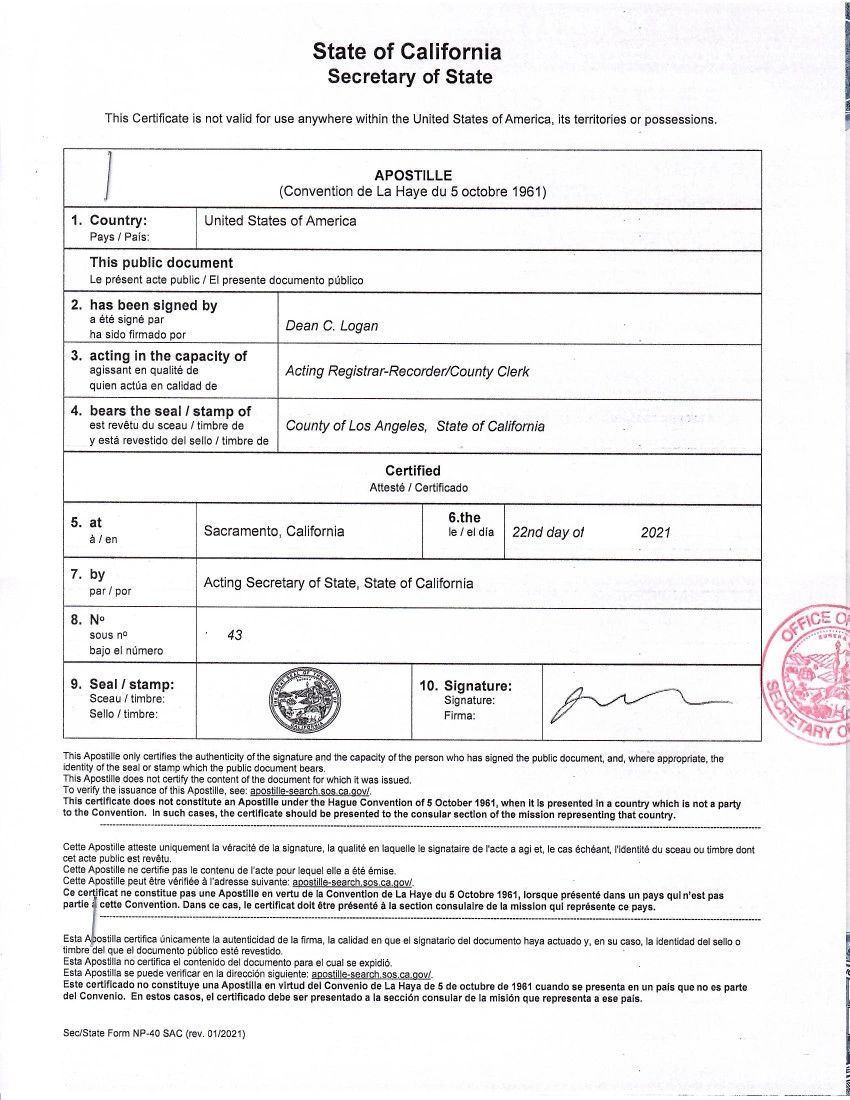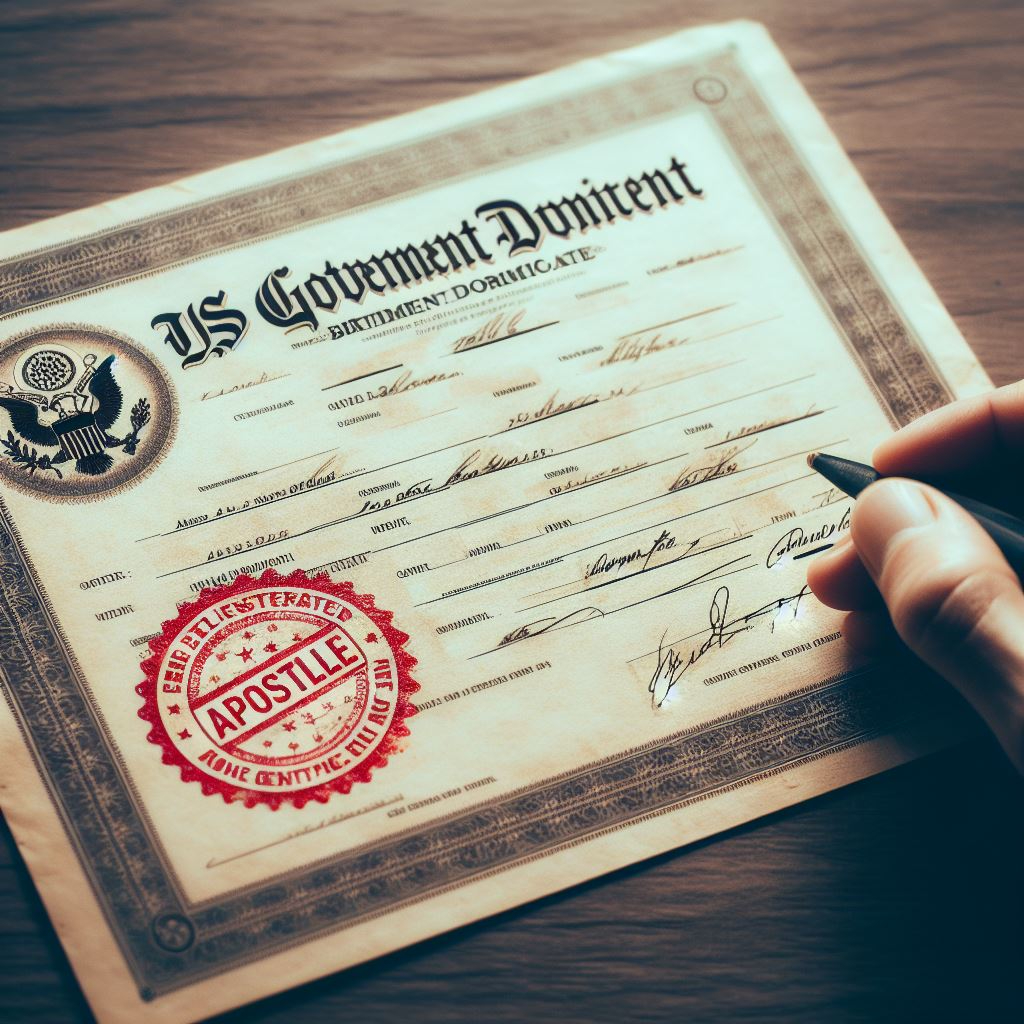Trustworthy Houston Apostille Solutions-- Quick and Expert Help
Trustworthy Houston Apostille Solutions-- Quick and Expert Help
Blog Article
Comprehending the Apostille Process: A Comprehensive Guide to International Paper Verification
Browsing the complex landscape of worldwide paper authentication can be daunting without a clear understanding of the apostille process. This overview thoroughly lays out the needed actions, from recognizing which records need qualification to sending them for confirmation by the Competent Authority. Understanding the relevance of an apostille and acknowledging prospective mistakes, such as insufficient entries and language barriers, can considerably simplify the authentication journey. What exactly specifies an apostille, and why is it so critical for documents destined for Hague Convention countries? These concerns develop the foundation of our exploration into this important lawful treatment.
What Is an Apostille?
An apostille is an official qualification that validates the credibility of a record for use in another nation. This qualification, released by an assigned authority in the nation where the paper stemmed, guarantees that the file is identified as legitimate and reputable in the worldwide arena. The procedure of acquiring an apostille includes several steps, including the verification of the record's trademarks, seals, and stamps by appropriate governmental bodies.
The apostille serves as an internationally acknowledged form of authentication, enabled by the Hague Convention of 1961. This treaty, officially understood as the Hague Convention Eliminating the Requirement of Legalisation for Foreign Public Records, standardizes the procedure of document accreditation among participant countries. The apostille itself is a standardized certification that contains details info, such as the issuing authority, the nation of origin, and the date of issuance.
It is essential to keep in mind that not all files are qualified for an apostille. Usually, public documents like copyright, marital relationship licenses, court orders, and instructional diplomas get approved for this certification. Exclusive records, such as contracts and arrangements, might require registration and extra steps to qualify.
Value of Apostille
Comprehending what an apostille is sets the stage for valuing its relevance in worldwide negotiations. houston tx apostille. An apostille, essentially a kind of accreditation issued by a designated authority, validates the credibility of a document for use in international nations that are notaries to the Hague Apostille Convention. This standardized process gets rid of the requirement for additional legalisation by embassies or consulates, thereby streamlining global transactions
The value of an apostille can not be overstated. It makes sure the integrity and approval of important records-- such as copyright, marital relationship licenses, and educational diplomas-- across borders. For businesses, it assists in the smooth conduct of international profession, mergers, and procurements by providing a trusted approach of record verification. This reduces bureaucratic hurdles, conserving both time and sources.
Additionally, an apostille boosts lawful security and conformity. Governments and click for more organizations can with confidence depend on the credibility of files bearing an apostille, mitigating the danger of fraud and misrepresentation. Thus, the apostille works as an important tool in promoting international participation and trust. Its role in cultivating effective and safe global transactions emphasizes its crucial value in today's interconnected globe.
Documents That Need Apostille
When taking part in international transactions or legal matters, certain files commonly require the verification offered by an apostille. This ensures their recognition and acceptance in nations that are notaries to the Hague Apostille Convention. Typically, personal papers such as birth certifications, marital relationship certificates, and fatality certificates call for an apostille, especially when they are utilized for processes like migration, marital relationship abroad, or worldwide probate matters.
Educational papers are an additional classification often requiring apostilles. Diplomas, transcripts, and scholastic documents commonly require this authentication for functions such as seeking additional education and learning, employment, or specialist licensing in a foreign country (houston tx apostille). This step assures that the documents are acknowledged as legitimate and valid
Lawful records, consisting of powers of lawyer, affidavits, and court orders, additionally typically demand apostilles. Company documents such as certificates of consolidation, laws, and business agreements may require an apostille to promote global profession, establish foreign branches, or take part in cross-border legal proceedings.
Steps to Acquire an Apostille

Acquiring an apostille includes a multi-step procedure that guarantees the credibility and approval of your records in international nations. The preliminary step is identifying which records require an apostille. houston tx apostille. Usual papers include birth certifications, marriage licenses, scholastic records, and business files
When recognized, the document has to be accredited by the appropriate releasing authority. This might include notarization by a notary public or verification by a neighborhood or state authorities, great site depending upon the type of paper. After qualification, the document should be sent to the marked Competent Authority in the paper's country of beginning. In the United States, for example, this is generally the Secretary of State's office for each and every state.
The entry process normally requires a finished application type, the original document, and a fee. Some jurisdictions may use the alternative of expedited processing for an additional fee. Upon effective verification, the Competent Authority will certainly fasten the apostille certification to the document, thereby verifying its credibility.
Usual Difficulties and Solutions
Navigating the apostille procedure can present a number of address typical difficulties that, if not correctly addressed, may delay or complicate document authentication. One constant problem is the submission of inaccurate or insufficient records. Each country has specific requirements for the kinds of papers that can be apostilled, and any type of inconsistency from these can cause rejection. Making sure that all files are accurate and total prior to entry is vital.
An additional common difficulty is comprehending the varied processing times. Processing times can vary significantly in between nations and even between different regions within the same nation. It is important to make up these variants when preparing the apostille process to stay clear of unexpected delays.
Furthermore, language obstacles can posture significant obstacles. Papers in an international language frequently call for qualified translations, and any mistakes in translation can cause further problems. Engaging a specialist translation solution can minimize this threat.

Final Thought
Understanding the apostille process dramatically improves the efficiency of international file authentication. By understanding the requirement of recognizing and accrediting required papers, and navigating the entry to the Competent Authority, the process becomes more convenient. Understanding of usual obstacles, such as insufficient entries and language barriers, further aids in protecting against potential delays. Making sure documents are effectively apostilled facilitates their approval in Hague Convention signatory nations, thus supporting smooth global legal and administrative treatments.
Report this page